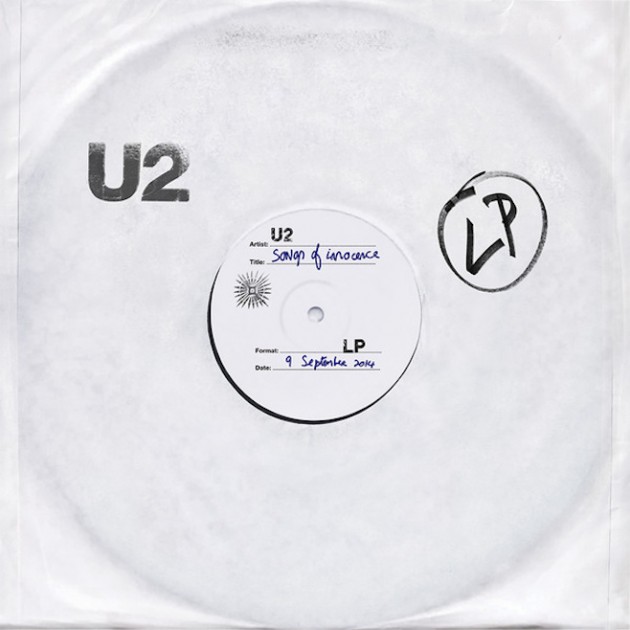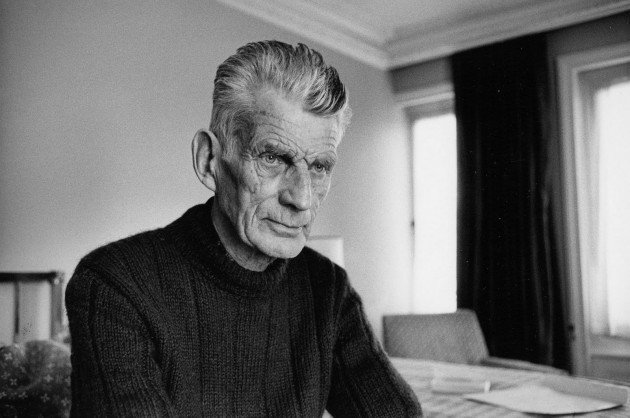So, straight off the bat – let’s forget about Apple, iTunes, hypocrisy, commerce, and even U2 themselves. Daunting though that may be, it doesn’t really help us when it comes to looking at Songs of Innocence, the thirteenth studio album by U2, arguably the biggest band in the world. Like looking at someone like Roman Polanski, or Woody Allen, or whomever, there comes a time when you have to separate the art from the artist, and attempt to consider that in isolation. And this time round, that’s never been more pertinent for U2.
Songs of Innocence is eleven tracks of new material from the band, their first since 2009’s No Line on the Horizon. That last record may have been the most divisive in their entire history, having seen the band fumbling with notions of identity and relevance, and producing a record that saw them uncertain of who they were, or what they were meant to be. Management trouble followed in the aftermath, and if it weren’t for the U2 Machine ever rolling onwards, one could have realistically expected it to be their final album.
Lead track ‘The Miracle (Of Joey Ramone)’ provides a faltering start to the album, a kind of contemporary-ish sounding pop-rock track that struggles to leave a mark. It’s certainly punchy, very much in the ‘Elevation’ or ‘Vertigo’ mould, without floundering in the way that the risible ‘Get on Your Boots’, perhaps the worst thing the band have ever released (which is saying something, frankly). But despite the confidence, it doesn’t really do anything particularly interesting, the four minutes of its existence drifting by without much incident. For the grand return of U2, it’s an inauspicious start.
But they we get into the meat of the album, and if you make it past the first track, this is where the magic might happen. ‘Every Breaking Wave’ and ‘California (There is No End to Love)’ are perfectly paced indie-pop-rock tunes that don’t outstay their welcome, sound immaculately produced, and are crammed with hooks and melodies. They don’t necessarily re-invent the wheel, but at no point to they feel like they need to. This sets the stage for what this album is *really* about; the return of U2 as “U2”.
It’s a trick they’ve done before on 2000’s All That You Can’t Leave Behind, a record which saw them firmly returning to the sound that made them massive in the 80s, which predictable success. But this time around, it feels like they’ve done it because they’ve decided they actually quite like the sound of U2, and are comfortable with it. So from the second track in, we get tight drumming with the occasional militaristic overtone from Larry Mullen Jr, we get simple but melodic basslines from Adam Clayton, we get textured and atmospheric guitar from the Edge, and we get Bono hollering heartfelt, but possibly meaningless platitudes. And depending on where you sit on such a thing, this makes for the most enjoyable album the band have made in 14 years.
‘Iris (Hold Me Close)’ has a real ‘Streets With No Name’ vibe, whilst ‘Raised by Wolves’ takes the sound of their debut album, 1980’s Boy, and imagines what it would sound like at the grand old age of 34. However, towards the end of the album, this compelling acknowledgement of the past mutates into something equally familiar – U2’s need to stay at the front of the pack. Now, in this case, that seems to mean throwing in a few subtle electronics, and occasionally ditching the guitar. As with so many things in the world of U2, this is nowhere near as earth shattering as U2 seem to think it is, and whilst it does add a different, more sombre sonic palette to the album, it’s easy to imagine these tracks being skipped in favour of the earlier, more human sounding songs on the album.
So, there’s a lot that’s good about Songs of Innocence. However, there’s still a lot wrong with it, too. As usual, the major stumbling block is Bono. Vocally, he sounds better than he has in a long time. It’s like they’ve managed to somehow transport the young Bono from 1984, and get him to sing instead of the 2014 model. However, the nature of what he’s singing hasn’t changed at all. U2’s lyrics always hinted at meaningfulness, some kind of profound truth, but upon even cursory investigation, they feel hollow and trite, snappy little aphorisms that sound cool, but leave little impact. This hasn’t changed, and whilst few of the songs possess any real howlers, they don’t have much memorable about them either. As always, Bono needs some words to sing, so he sings some words. Beyond that, there’s little happening.
The final track on the album is called ‘The Troubles’. Now, in the hands of any writer, this is going to be tricky stuff. But Bono crashes headfirst into it, uttering totally meaningless couplets like, “I have a will for survival, so you can hurt me, and then hurt me some more / I can live with denial, but you’re not my troubles anymore.” Now, on the one hand, ok…he’s talking about a relationship, y’know? Not what you thought! LOLZ! But in reality, how can Bono, an Irish person with a long proven interest in the difficulties Northern Ireland has faced over the years, write a song called ‘The Troubles’, and not be aware of what a provocative and incendiary act that would be? Releasing said track on the anniversary of the 1994 ceasefire is clumsy, calling it ‘The Troubles’ is clumsy, and filling it full of silly lyrics about nothing is downright stupid. Many years ago, David Byrne of Talking Heads once sang, “When I have nothing to say, my lips are sealed.” Perhaps Bono could have learnt from this lesson.
As well as this, even on some of the good tracks, the band occasionally miss the “U2” target, and end up sounding like “The Killers covering U2”. Harking back to past glories can be a dangerous thing, and in no uncertain terms, these songs rarely match up to the source from which they’ve drawn their inspiration. Whilst they all float on by, leaving an overall pleasant impression, there’s always a lingering sense that this is a copy of a copy of a copy.
Conceptually, too, there’s difficulties. In the early 80s, U2 were full of pride and passion, embracing causes, bellowing and hollering, all the while drawing upon touchstones like Joy Division and Television to carry their muse. The 2014 model struggles in a number of profound ways. At its very best, Songs of Innocence struggles to justify its existence. There’s no real moment of recognition where the listener can go, “Oh, that’s why they’ve made this album,” or “That’s what this is all about.” In keeping with the music they’ve made for the last 14 years, this album seems to exist because there’s somehow a need for more U2 product, and as such, U2 have delivered more product.
The pacier, earlier material on the album somehow lacks a dignity, zipping along and aping the sound and energy of a younger band, without ever really capturing the essence of what this is about. In a way, U2 appear to be trying to sound contemporary, but only in an imagined sense. For better or for worse, people don’t really make music like this anymore, but if they did, it’d probably sound like this, right? It’s possible to imagine U2 in a sprinting race, where all the other competitors are figments of their imagination. Yet still, always, inexorably, even though they’ve only really themselves to beat, they keep looking at what everyone else is up to, needing to be at the front.
For all its strengths, it’s this incoherence that stops Songs of Innocence from being what U2 clearly want and need it to be; a classic U2 album. Maybe when U2 finally work out why the world would need a classic U2 album, they’ll be capable of delivering it. Steven Rainey






